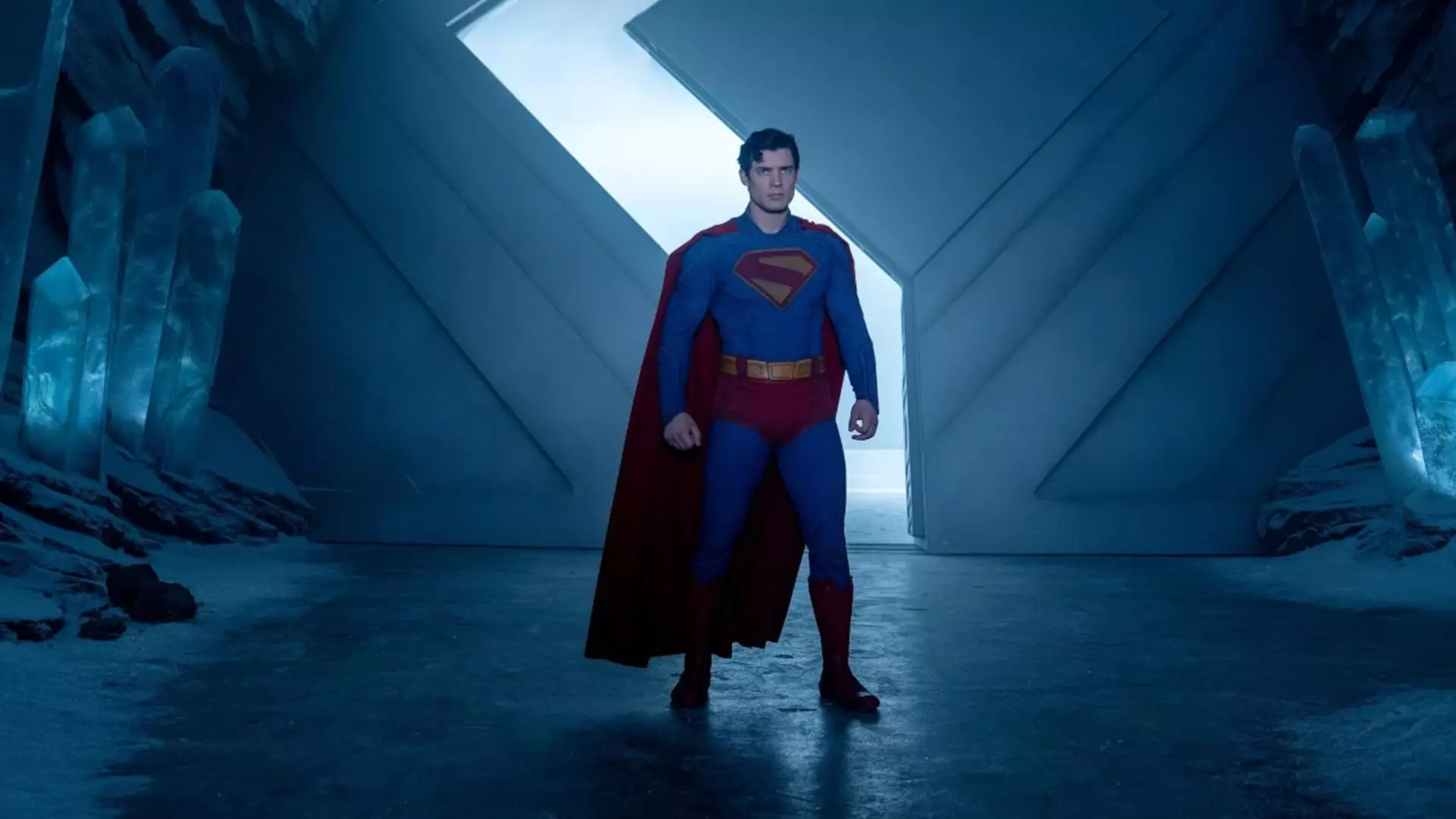When Warner Bros. launched its latest take on Superman, expectations soared higher than the Man of Steel himself. The preview numbers, reaching $22.5 million, indicate a renewed interest in the iconic superhero, but such metrics must be scrutinized through a critical lens. While this marks a significant achievement compared to past previews, especially “Man of Steel,” it still leaves a vast chasm between initial numbers and blockbuster successes like “The Dark Knight Rises” or “Batman v. Superman.” That gap reveals more than just the freshness of the reboot; it exposes the uncertainties surrounding the franchise’s future. The question isn’t whether the film will succeed but whether it can sustain momentum beyond the initial opening, especially given Hollywood’s brutal box office realities. The superhero genre’s saturation has created a double-edged sword—fan anticipation is high, but fatigue also looms, threatening to erode the very excitement Warner Bros. seeks to capitalize on.
Box Office: Hopeful Numbers or a Mirage of Reinvention?
The projected three-day opening of $130-$140 million aligns with industry expectations for a reboot of Superman’s stature. However, history suggests that early enthusiasm often fades quickly unless the film offers something truly groundbreaking. While critics offer an 83% approval rating—an impressive score—initial reviews often don’t translate into long-term box office dominance. Audience retention and word-of-mouth are critical, and without a compelling narrative that updates Superman for modern sensibilities, the film risks becoming just another fleeting hit. The comparative performance of past DC outings demonstrates that even with strong opening weekends, sustaining audience interest remains a formidable challenge. The dominance of Marvel’s expansive universe, combined with a more strategic approach to character development and storytelling, underlines a vital truth: superhero films must grow beyond spectacle and tap into deeper themes to endure.
The Strategic Significance of Gunn and Safran’s Vision
James Gunn and Peter Safran have inherited more than just a franchise—they possess the proverbial keys to a multibillion-dollar kingdom that could redefine DC’s relevance. Their decision to craft a long-term vision signals intent not just for immediate box office gains but for establishing a sustainable universe. Yet, realism must temper optimism. Their track record, while impressive, is not infallible. “Guardians of the Galaxy,” “The Suicide Squad,” and “Peacemaker” show their talent for balancing humor, character depth, and spectacle, but translating these qualities to a flagship Superman film—arguably a more culturally ingrained icon—requires more than technical skill. It requires the ability to reconnect with core audiences and new viewers simultaneously. The inner tension between staying true to the character’s essence and modernizing him is the gamble that, if mismanaged, could tarnish what should be a rebirth process.
Rebooting with a Purpose or Falling into Franchisewood?
Critics speak of a “new era” for DC, yet such promises often ring hollow when the industry’s history is littered with failed franchises and half-baked reboots. Gunn and Safran face the hefty task of not only convincing audiences that Superman is still relevant but also of convincing them that Warner Bros. is trustworthy again. With a ten-year plan in motion, their approach seems ambitious—aiming to invigorate both theatrical releases and streaming content. Still, the reliance on nostalgia and existing characters cannot alone guarantee success. They need to craft fresh narratives that standout amidst a crowded landscape, leveraging the film’s hopeful tone as a competitive advantage rather than a mere marketing hook. Without this strategic storytelling, the reboot risks blending into the background noise of countless superhero titles, offering little more than surface-level spectacle.
A Cultural Crossroad for Superhero Filmmaking
The superhero genre is no longer solely about entertainment—it’s about cultural commentary and societal reflection. Warner Bros.’ recent efforts suggest an understanding that the landscape has shifted; audiences today hunger for meaningful stories wrapped in familiar icons. Superman, as an archetype of hope and morality, could serve as a mirror for a world in flux, yet that requires bold storytelling choices that acknowledge contemporary issues. While initial reactions and early reviews provide a glimmer of hope, the project’s ultimate strength hinges on whether it can transcend mere spectacle and ignite genuine cultural discourse. If Warner Bros. and its creative leads seize this moment to redefine what Superman stands for, they might truly turn this reboot into a landmark. But if they fall back on cliché, superficial themes, the film—and perhaps the entire franchise—will be condemned to obscurity or, worse, irrelevance in a fiercely competitive industry.


Leave a Reply